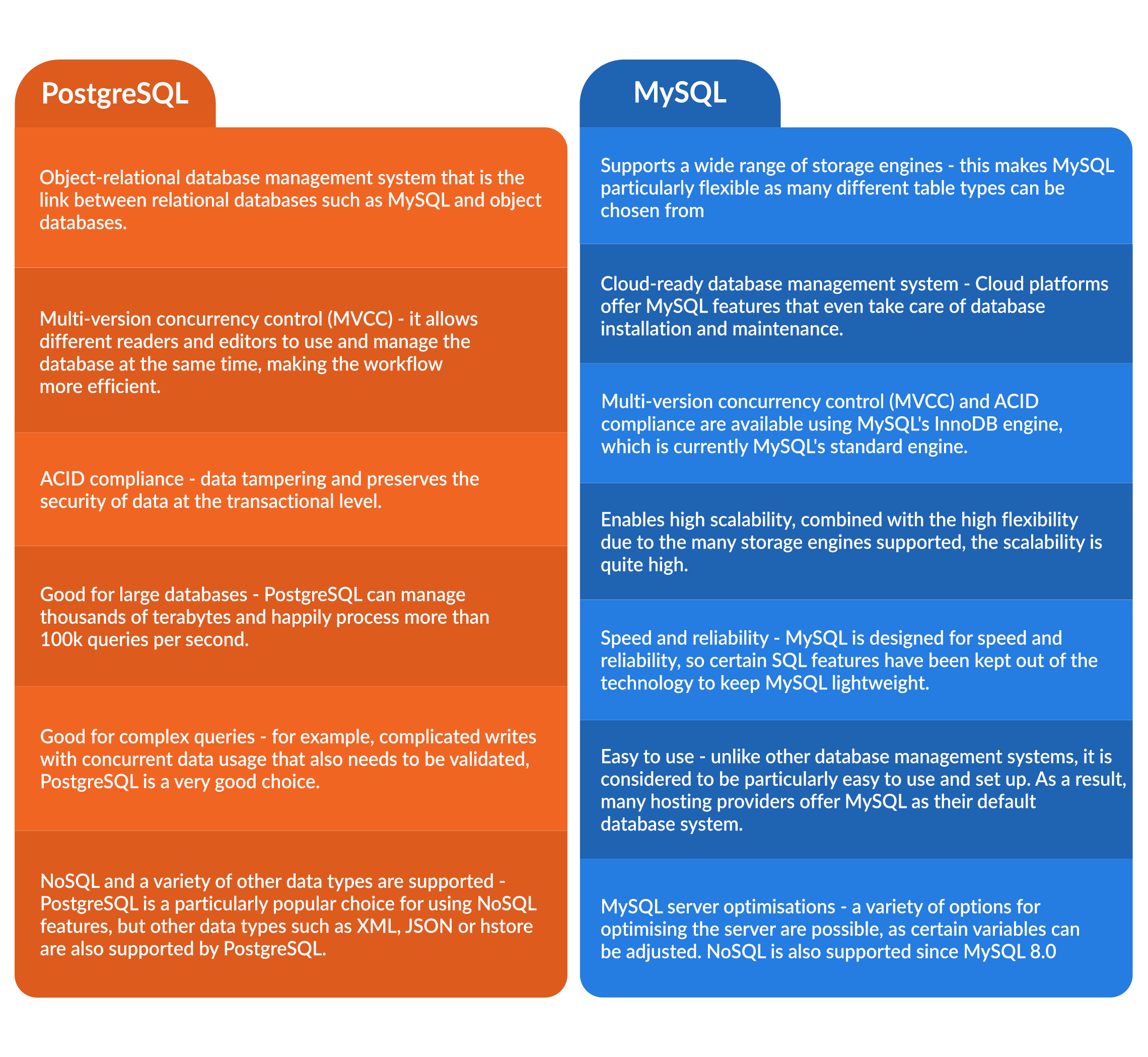


**Title: PostgreSQL vs. MySQL: Navigating the SQL Landscape**
Choosing the right SQL platform is a critical decision for developers and businesses alike. In the realm of relational databases, two heavyweights, PostgreSQL and MySQL, stand out. Let's explore the nuances of each to help you decide which SQL platform aligns with your project goals.
PostgreSQL: The Powerhouse of Extensibility
Strengths:
1. **Extensibility:** Known for supporting complex data types and custom functions, PostgreSQL excels in handling diverse and evolving data structures.
2. **ACID Compliance:** With a strong focus on data integrity, PostgreSQL ensures Atomicity, Consistency, Isolation, and Durability – crucial for robust transactions.
3. **Advanced Features:** Rich features such as full-text search, advanced indexing, and JSON support make PostgreSQL a top choice for complex applications.
Use Cases:
- Applications requiring complex queries and data types
- Geospatial applications
- Large-scale data warehousing
MySQL: The Reliable Workhorse
Strengths:
1. **Performance:** MySQL is celebrated for its speed and efficiency, making it an ideal choice for applications with high read and write loads.
2. **Simplicity:** Known for its ease of use, MySQL is particularly friendly to beginners and startups, requiring minimal configuration to get started.
3. **Scalability:** MySQL performs admirably in scaling read-heavy workloads and is a popular choice for web applications.
Use Cases:
- Web applications
- E-commerce platforms
- Content Management Systems (CMS)
Choosing Your Database Odyssey
PostgreSQL May Be for You If:
- You prioritize extensibility and support for advanced data types.
- ACID compliance is non-negotiable for your project.
- Your application demands intricate queries and geospatial features.
MySQL May Be for You If:
- Speed and performance are top priorities, especially for read-heavy workloads.
- Simplicity and ease of use are crucial, making it an excellent choice for startups.
- Your project involves web applications or content management systems.
Conclusion
In the PostgreSQL vs. MySQL saga, the decision hinges on your project's specific requirements. PostgreSQL's extensibility and support for complex data structures make it a powerhouse for intricate applications, while MySQL's speed and simplicity shine in scenarios demanding efficiency and ease of use. Ultimately, both databases are reliable choices with extensive communities and proven track records. So, whether you lean towards PostgreSQL or MySQL, rest assured that you're embracing a SQL platform ready to support your data-driven journey. MySQL and PostgreSQL are both leading database technologies built on a foundation of SQL: Structured Query Language. SQL forms the basis of how to create, access, update, and otherwise interact with data stored in a relational database. While MySQL has been the most popular platform for many years, PostgreSQL is another major contender. Many database administrators and developers will know both technologies, which are much more similar than they are different. You can learn more about the history of SQL and how the various “flavors” came to be by watching this brief video: Depending on what you’re trying to create, the data you’re trying to manage, and your own background as a programmer or analyst, you may find one language preferable over the other. But in terms of popularity and marketability, both are widely used, with MySQL maintaining the advantage here. Compared to PostgreSQL, MySQL has the largest market share and, therefore, the most job opportunities. Here’s what you need to know about MySQL vs. PostgreSQL — the differences, benefits, and disadvantages — as well as some basic information about SQL and database platforms.
0 comments